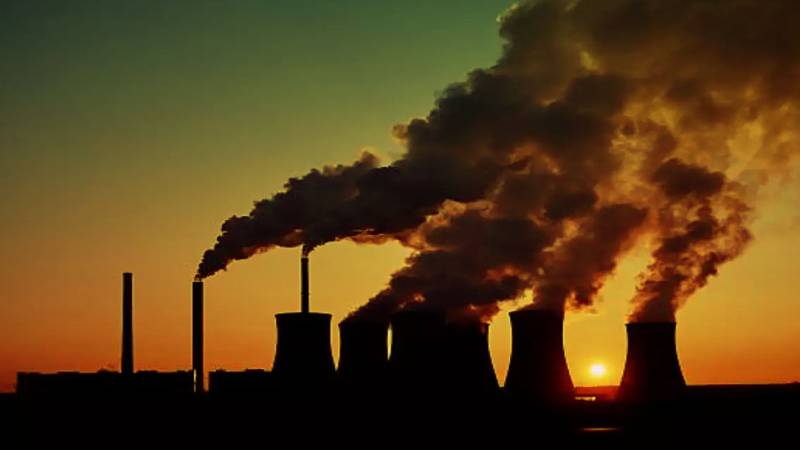
The Earth's average surface temperature is gradually rising due to a phenomenon known as global warming, which is a serious threat to our planet. This environmental disaster, which is mostly the result of human activity, has profound effects on ecosystems, weather patterns, and human societies. Let's try to examine the causes, consequences, and potential remedies of global warming and call for swift action from all parties to lessen its effects.
The rise in greenhouse gases (GHGs) in the atmosphere is the main cause of global warming. Important GHGs consist of carbon dioxide (CO2), which is released via the combustion of fossil fuels such as coal, oil, and natural gas, as well as during a number of industrial processes and deforestation. Another one is methane (CH3), which emits from cattle and other agricultural activities as well as during the extraction and transportation of coal, oil, and natural gas. Third is nitrous oxide (N2O), which is released during the burning of fossil fuels and solid waste, as well as from industrial and agricultural processes. Another is fluorinated gas. These are synthetic gases that are generated during production operations and are utilized in a variety of industrial applications.
As carbon sinks, forests take up CO2 from the atmosphere. This capability is diminished by deforestation and changes in land use, which raise the CO2 concentration. Through energy consumption, chemical reactions, and animal management, industrial activities and agricultural practices largely contribute to greenhouse gas emissions.
Since pre-industrial times, the average global temperature has increased by 1.2°C (2.2°F), which has resulted in an increase in the frequency and severity of heatwaves. Increases in the frequency and intensity of extreme weather events, such as hurricanes, droughts, floods, and wildfires, are associated with global warming.
Temperature and weather variations upset ecosystems, resulting in a decline in biodiversity, changes to habitats, and a higher chance of species extinction.
Heat stress, breathing difficulties, and the spread of infectious diseases are among the health problems that are made worse by global warming. It also affects economic stability, agriculture, and water supplies, especially in areas that are vulnerable.
There is a need for a transition to renewable energy. Substituting more fossil fuels with renewable energy sources like solar, wind, and hydroelectric electricity.
Steps should be adopted to improve energy efficiency in industrial operations, buildings, and transportation; the absorption and storage of CO2 emissions from factories and power plants; increasing carbon sequestration through tree planting and forest restoration; and using sustainable farming methods to improve soil carbon storage and lower emissions of methane and nitrous oxide.
It is high time for the government to implement international agreements such as the Paris Agreement to set and achieve emission reduction targets. Moreover, national and local policies should be enforced to reduce GHG emissions and promote sustainable practices at the national and local levels.
There are several other methods through which the effects of climate change can be curtailed. For instance, designing and constructing infrastructure that can withstand extreme weather events and rising sea levels, implementing effective water management practices to address droughts, floods, and water scarcity, and developing crop varieties and farming techniques that are resilient to changing climate conditions.
All facets of society must take immediate and consistent action to address the urgent issue of global warming. We can lessen the effects of global warming and ensure a sustainable future for future generations by cutting back on greenhouse gas emissions, implementing sustainable practices, and increasing resilience to climate impacts. Governments, corporations, and individuals must come together to tackle this catastrophe and safeguard the environment.

